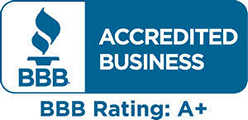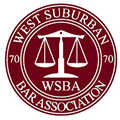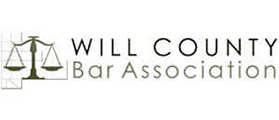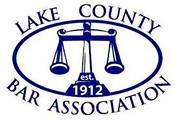1100 Lake Street, Suite 120, Oak Park, IL 60301
Oak Park | 708-848-3159
DuPage County | 630-852-9700 Mokena | 815-727-6144
Contact Our Firm
The use of the Internet or this form for communication with the firm or any individual member of the firm does not establish an attorney-client relationship. Confidential or time-sensitive information should not be sent through this form.
I have read and understand the Disclaimer and Privacy Policy.

Recent Blog Posts
3 Tips for Moving on as a Stay-at-Home Parent in an Illinois Divorce
 Statistics show that many marriages end in divorce. Once you and your spouse make the decision to part ways, there are several issues you will need to resolve. Some of these include the division of marital assets (and debt), child support, and spousal maintenance. In some cases, one spouse may have stayed home to raise the couple’s children. In other scenarios, both parents might have pursued careers. For stay-at-home moms or dads, it can be difficult to imagine a new life as a single parent, which often means finding a job to make ends meet. However, there are ways to cope with this major life transition, and you will want to make sure you have the financial resources you need after your divorce.
Statistics show that many marriages end in divorce. Once you and your spouse make the decision to part ways, there are several issues you will need to resolve. Some of these include the division of marital assets (and debt), child support, and spousal maintenance. In some cases, one spouse may have stayed home to raise the couple’s children. In other scenarios, both parents might have pursued careers. For stay-at-home moms or dads, it can be difficult to imagine a new life as a single parent, which often means finding a job to make ends meet. However, there are ways to cope with this major life transition, and you will want to make sure you have the financial resources you need after your divorce.
How Does Dissipation of Assets Affect My Illinois Divorce?
 The end of a marriage can be difficult, regardless of the reasons why a couple’s relationship broke down. Even an amicable divorce may have its challenges, since many legal issues will typically need to be resolved, including the division of assets. In Illinois, marital property is subject to equitable distribution. This means that any assets acquired during the marriage must be divided fairly. In some cases, it may be discovered that one spouse frivolously spent a large portion of the marital assets. Referred to as dissipation of assets, this typically occurs when one partner wastes money by making large purchases for his or her own benefit. This behavior often occurs when there are problems in the marriage, and a divorce is forthcoming. If you suspect that your spouse may have squandered marital funds, you may be entitled to compensation in your Illinois divorce settlement.
The end of a marriage can be difficult, regardless of the reasons why a couple’s relationship broke down. Even an amicable divorce may have its challenges, since many legal issues will typically need to be resolved, including the division of assets. In Illinois, marital property is subject to equitable distribution. This means that any assets acquired during the marriage must be divided fairly. In some cases, it may be discovered that one spouse frivolously spent a large portion of the marital assets. Referred to as dissipation of assets, this typically occurs when one partner wastes money by making large purchases for his or her own benefit. This behavior often occurs when there are problems in the marriage, and a divorce is forthcoming. If you suspect that your spouse may have squandered marital funds, you may be entitled to compensation in your Illinois divorce settlement.
What Are the Advantages of Mediation in an Illinois Divorce?
 Filing for divorce or being served with divorce papers can be an overwhelming experience. There are many decisions to make, especially if you and your spouse have children together. However, if you and your spouse are able to cooperate and work together to make these decisions, the process can be completed more quickly and easily. One way of doing so is through mediation.
Filing for divorce or being served with divorce papers can be an overwhelming experience. There are many decisions to make, especially if you and your spouse have children together. However, if you and your spouse are able to cooperate and work together to make these decisions, the process can be completed more quickly and easily. One way of doing so is through mediation.
During divorce mediation, you and your spouse will meet with a neutral third-party mediator to work through the issues you need to resolve so the two of you can end your marriage as peacefully and cost-effectively as possible. During mediation, the two of you will work to reach agreements on issues such as child custody, spousal support/maintenance, property and asset division, and any other matters that will need to be addressed in order to legally end your marriage.
How Are Marital Assets Divided in a Same-Sex Divorce in Illinois?
 The state of Illinois legalized marriage between two people of the same sex in 2013. Same-sex couples have the same rights and responsibilities as their heterosexual counterparts regarding marriage. This means all the same issues will need to be resolved in the event of a divorce. In the Illinois Marriage and Dissolution of Marriage Act, marital property is defined as any assets that were acquired by either spouse after they were legally married and before a judgment of legal separation. In a divorce, any marital property is subject to “equitable distribution.” This method involves splitting assets acquired during the marriage in a “fair” manner, but not necessarily completely equally or in half. Same-sex couples who divorce can face unique challenges when dividing their property due to the nature of their relationship.
The state of Illinois legalized marriage between two people of the same sex in 2013. Same-sex couples have the same rights and responsibilities as their heterosexual counterparts regarding marriage. This means all the same issues will need to be resolved in the event of a divorce. In the Illinois Marriage and Dissolution of Marriage Act, marital property is defined as any assets that were acquired by either spouse after they were legally married and before a judgment of legal separation. In a divorce, any marital property is subject to “equitable distribution.” This method involves splitting assets acquired during the marriage in a “fair” manner, but not necessarily completely equally or in half. Same-sex couples who divorce can face unique challenges when dividing their property due to the nature of their relationship.
What Rights Does Paternity Provide to a Father and Child in Illinois?
 Being a parent can be one of the most rewarding experiences of someone’s life. However, in some cases, the identity of a child’s father may be questioned or contested. This may occur in situations where a couple is not married or if the mother had multiple partners. In Illinois, if a child’s mother is married or in a civil union when the child was born or within 300 days before the child was born, her husband or partner is legally presumed to be the father of the child. By legally establishing paternity in Illinois, a father and child can confirm their relationship and all the rights and responsibilities that go along with it. For example, there are certain benefits for which a child is eligible as someone’s son or daughter. In addition, the father is entitled to specific parental rights.
Being a parent can be one of the most rewarding experiences of someone’s life. However, in some cases, the identity of a child’s father may be questioned or contested. This may occur in situations where a couple is not married or if the mother had multiple partners. In Illinois, if a child’s mother is married or in a civil union when the child was born or within 300 days before the child was born, her husband or partner is legally presumed to be the father of the child. By legally establishing paternity in Illinois, a father and child can confirm their relationship and all the rights and responsibilities that go along with it. For example, there are certain benefits for which a child is eligible as someone’s son or daughter. In addition, the father is entitled to specific parental rights.
A Child’s Legal Rights
What Expenses Does Child Support Cover in an Illinois Divorce?
 Going through a divorce involves many legal steps with various issues to discuss and resolve. If a couple has children together, that means a lot of decisions will need to be made regarding their welfare. Issues such as the allocation of parental responsibilities and parenting time may be agreed upon by both spouses. However, if the parents cannot come to a resolution, the court will intervene, and a judge will decide what is in the best interests of the kids. Child support is another important issue that needs to be addressed when a couple legally terminates their marriage. The non-custodial parent will typically be required to pay the custodial parent a certain amount each month to help address the child-rearing costs.
Going through a divorce involves many legal steps with various issues to discuss and resolve. If a couple has children together, that means a lot of decisions will need to be made regarding their welfare. Issues such as the allocation of parental responsibilities and parenting time may be agreed upon by both spouses. However, if the parents cannot come to a resolution, the court will intervene, and a judge will decide what is in the best interests of the kids. Child support is another important issue that needs to be addressed when a couple legally terminates their marriage. The non-custodial parent will typically be required to pay the custodial parent a certain amount each month to help address the child-rearing costs.
Choosing Between a Domestic or an International Adoption
 For couples who cannot have biological children of their own, adoption can be the only way for them to become parents. Adopting a child can also allow spouses who are already parents to expand their family. In addition, adoption can help a single person fulfill his or her dream of becoming a mother or a father. When considering adoption, there are typically two kinds: domestic and international. Determining which route to take involves many factors, such as cost, timeline, and medical history. It is important to do research and select the form of adoption that best fits your family situation or dynamic.
For couples who cannot have biological children of their own, adoption can be the only way for them to become parents. Adopting a child can also allow spouses who are already parents to expand their family. In addition, adoption can help a single person fulfill his or her dream of becoming a mother or a father. When considering adoption, there are typically two kinds: domestic and international. Determining which route to take involves many factors, such as cost, timeline, and medical history. It is important to do research and select the form of adoption that best fits your family situation or dynamic.
Factors to Consider When Adopting
Adoption is a serious endeavor that should be carefully considered before committing to it. Whether there are two parents or one parent, there are many issues to think through and figure out. Some of the important factors to consider before embarking on the adoption journey include:
How Can I Protect My Family Business in an Illinois Divorce?

A divorce can be an intimidating experience for anyone, considering all the legal, financial, and personal issues that need to be worked out once a couple decides to part ways. Illinois is an “equitable distribution” state, which means marital property will be divided fairly and equitably, but not exactly in half or 50/50. For those people who own their own company, it can be difficult to think about how to split that important asset. Not only is a family-owned business the basis of someone’s livelihood, it can have great sentimental value if it has been in the family for a long time. Therefore, it is important to understand the business valuation process during divorce to ensure your rights are protected.
What Are the Penalties for Stalking During an Illinois Divorce?

A divorce can occur for many reasons, and domestic violence is one of the most serious issues that may lead to the end of a marriage. This type of abuse can take many forms, including harassment, stalking, and electronic monitoring. Stalking is often thought of as the act of physically following someone, and it is not uncommon for an abusive spouse to continue to stalk his or her partner even if one party has moved out of the marital home they once shared together. In today’s online world, a person can also stalk or harass someone electronically via computers or phones. Electronic monitoring refers to videotaping or tracking an individual’s movements without consent by placing video cameras or audio recording devices in his or her home. Fortunately, there are actions victims of this kind of harassment can take to protect themselves and punish their stalkers.
Co-Parenting Tips During the Holidays After an Illinois Divorce
 When a couple gets a divorce, there are many issues that need to be addressed, especially if the spouses have a child together. Child-related issues such as allocation of parental responsibilities, child support, and parenting time are all important matters. Determining which parent the children will live with and when or how often the other parent gets to see them can be decided mutually by the couple. In this case, the couple can create a parenting plan that outlines the details of a proposed schedule. Co-parenting can be challenging, but studies show that kids benefit from having both parents actively involved in their life. With the upcoming Thanksgiving and Christmas holidays, being open to changes in co-parenting schedules will alleviate stress for everyone.
When a couple gets a divorce, there are many issues that need to be addressed, especially if the spouses have a child together. Child-related issues such as allocation of parental responsibilities, child support, and parenting time are all important matters. Determining which parent the children will live with and when or how often the other parent gets to see them can be decided mutually by the couple. In this case, the couple can create a parenting plan that outlines the details of a proposed schedule. Co-parenting can be challenging, but studies show that kids benefit from having both parents actively involved in their life. With the upcoming Thanksgiving and Christmas holidays, being open to changes in co-parenting schedules will alleviate stress for everyone.























